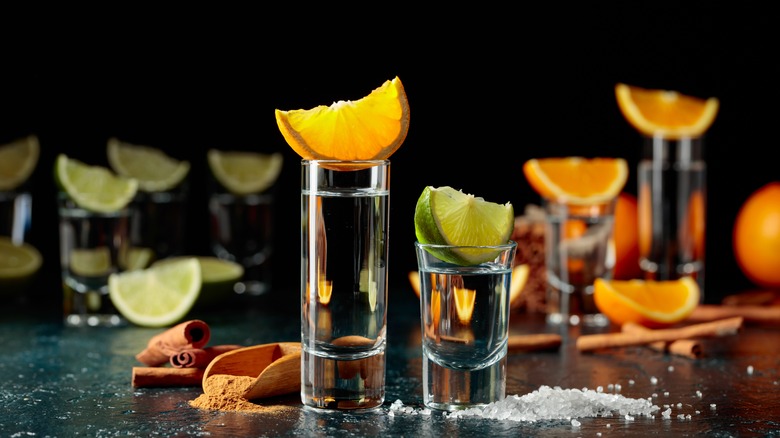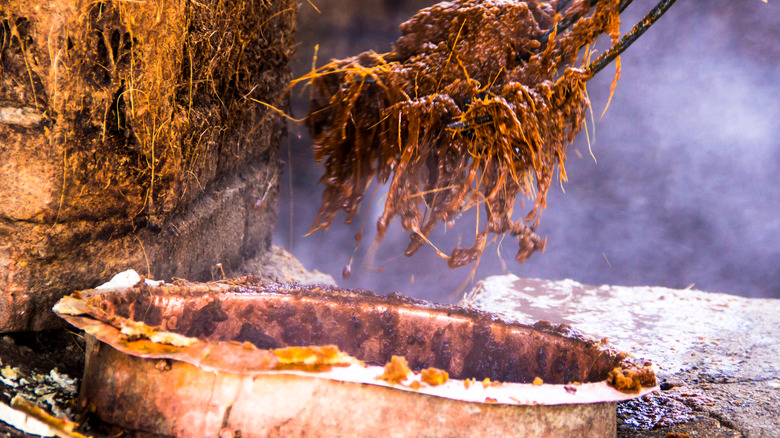The Sugar Standard That All Tequilas Must Follow
Mexico produces a diverse range of incredible spirits — from mezcal, rum, ceremonial pox, to whiskey, desert shrub distillate sotol and more. Yet none have achieved widespread popularity quite like tequila. In part, it's thanks to its vigorous regulation, established as the first Mexican liquor with Appellation of Origin. Much like champagne, rules regarding origin, production and authenticity aid consumers in knowing what's in a bottle. One such requirement is that at least 51% of the liquor's fermentable sugars are from agave.
This required composition is created during the distillation process. Tequila's unique flavor and alcohol arise due to the fermentation of sugars in agave juice. This sweet liquid is extracted from specifically the blue agave plants (a prominent distinction between tequila and mezcal) via steaming and crushing. And prior to exposure to yeast, at least 51% of this sugary juice must be from the agave. Some distillers produce tequila with exclusively this sugar base — this is referred to as 100% agave tequila. However, others introduce cane or corn sugars to either cut costs, or influence flavor profiles. Typically, such mixto tequilas are considered bottom shelf, albeit they're potentially still worth buying. Covering the gamut of compositions from 51% to 100%, there's lots of intricacy to this agave spirit, so it's helpful to know production intricacy.
Tequila must be fermented from at least 51% agave sugar
The tequila industry is storied, and keeps evolving in its practices. The 51% agave sugar requirement is actually relatively recent, first implemented in 1970. Prior, tequila required higher agave sugar compositions — in fact, when regulation started in 1949, the liquor necessitated 100% agave sugar fermentation. The ebb and flow of agave distillation purity dates back even further to the 19th century, and was often a reflection of economic conditions and drinkers' tastes. For example, decades of war in 17th-century Mexico led to more additives being used in tequila in an effort to cut costs, resulting in unappetizing flavors and bad hangovers.
Today, there's a growing interest in completely pure tequila, made with 100% agave, and completely absent of any additives. In addition to fermenting from different sugars, tequila producers may include chemicals like glycerin, or caramel coloring after distillation to influence appearance, taste, and mouthfeel. Unlike tequilas with clearly listed 100% agave composition, such additives don't need to be disclosed in small quantities.
As a result, there's now also an Additive-Free Alliance certification, which can be adhered to bottles by external production inspection. Such a marker is a display of the ever-evolving standards in tequila — agave sugar content has now become less talked-about in the industry. So whether you're after the perfect margarita, or the perfect neat sipper, pay attention to all such factors for the purest agave taste.

